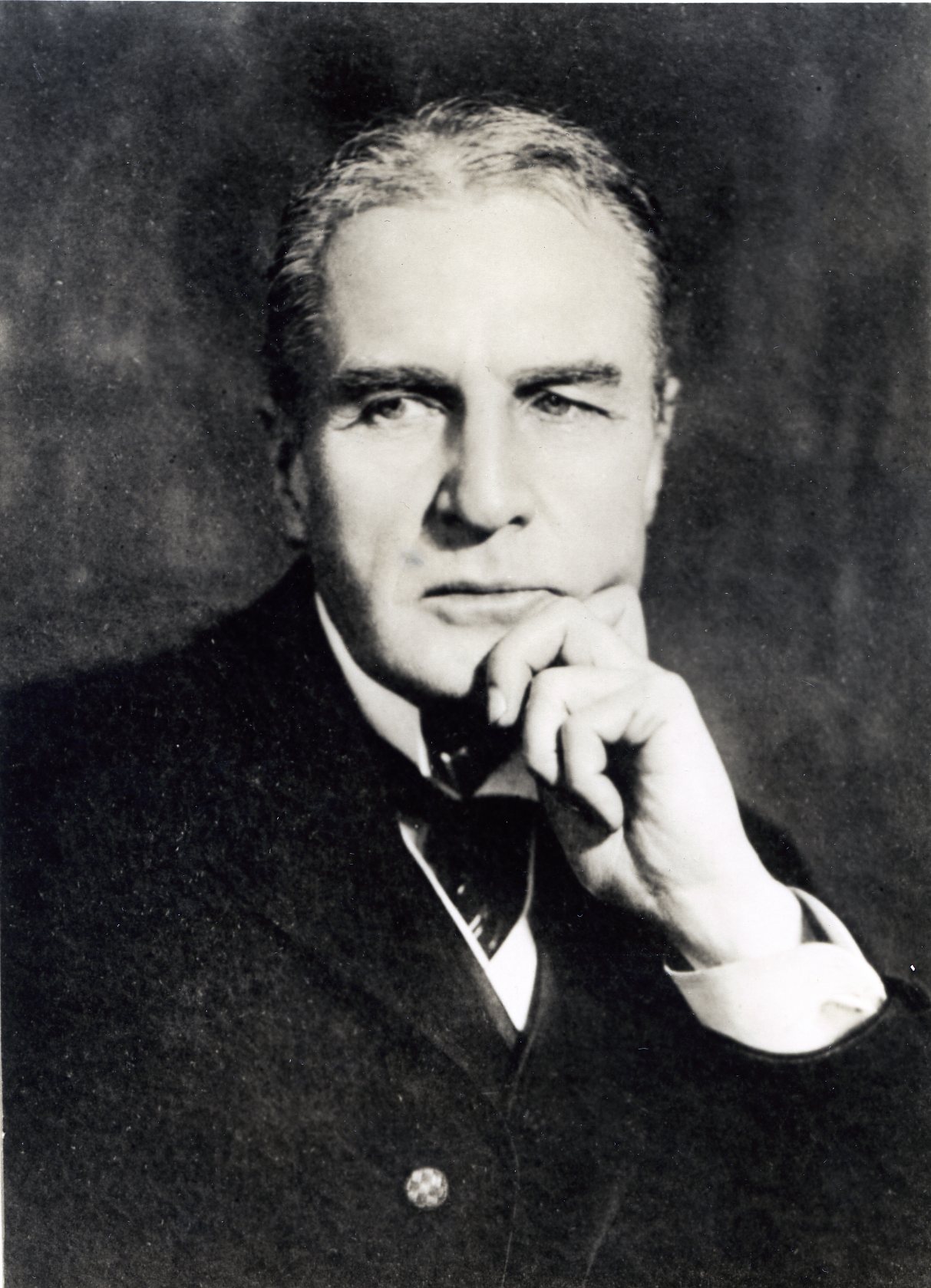Actor/Playwright
Centurion, 1916–1937
Born 24 July 1853 in Hartford, Connecticut
Died 29 April 1937 in Hartford, Connecticut
Buried Riverside Cemetery , Farmington, Connecticut
, Farmington, Connecticut
Proposed by Augustus Thomas and Robert Underwood Johnson
Elected 1 April 1916 at age sixty-two
Century Memorial
Those of us who, forty or fifty years ago, used to read with excitement and delight Conan Doyle’s newly-published “Sherlock Holmes”—and that means practically all of us who were then able to read—will agree that it was the story, the ingenious outlining and unraveling of the plot, which most appealed to imagination. Except in so far as the author described his leading characters as lean or portly, tall or short, the physical picture even of Sherlock Holmes was not definite. On the stage of the later Nineties, this lack was soon supplied. William Gillette instantly made the personality of the psychological detective, his mannerism, voice, gesture, his slow then quickened step, the lazy puffing at his cigar, as familiar to whoever was lucky enough to see him on the stage as were intimate personalities in real life. At critical junctures in the plot, Gillette possessed in uncommon measure the art, not shared by many stage celebrities, of holding his audience in breathless suspense merely by standing motionless and saying nothing, but with the tense excitement of the moment written on his sharp, self-possessed face and rigid figure, or communicated to the excited listener by something like telepathy. What sudden misgiving, plan, expedient was passing through the brain of the silent figure on the stage, his audience knew instantly.
Gillette was so well aware of the dramatic incidents essential to display of these qualities, of what dialogue should best precede and follow, that he usually wrote his own plays. When Bronson Howard’s success with “Shenandoah” in 1889 had aroused the theatre-going public’s interest in Civil War dramas, Gillette took a hand with his “Held by the Enemy” and “Secret Service.” Both were his compositions; both were tensely interesting. Even at this distance of time, people that saw them will remember how the resourceful Union spy who held the centre of the stage was an exact foreshadowing of Gillette’s Sherlock Holmes, not least in the moments of crisis when the spy, alone and silent in the military Confederate telegraph-room, listened to the clicking instrument and tapped it in his turn, and when the discoveries which must have been made by him raced through the audience’s mind. Gillette had been a fellow member of our own for eleven years. He did not come often to the Club-house, but his conversation was as entertaining as that of the other master-actors on our roll, and his background was as varied as theirs. When it is recalled that he had seen sixty years of active service on the stage, yet that his was a New England family and that his father had been United States Senator from Connecticut, one surely gets a glimpse of the varied panorama of American achievement.
Alexander Dana Noyes
1938 Century Association Yearbook

